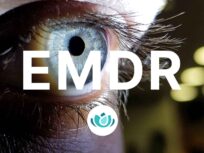Our Treatments
Diverse & Comprehensive Healing
A Spectrum of Effective Treatment Modalities
At Tulua Health, we understand that healing is a journey that requires a multifaceted approach. Our range of treatment options is designed to address the unique needs and challenges of each individual. Some of the treatments we offer include:
Group & Family Therapy
Experience the power of shared healing in a safe, supportive environment. Our group therapy sessions foster a sense of community, empathy, and mutual growth.
Cognitive Behavioral Therapy
A cornerstone of our treatment approach, CBT helps clients identify and change negative thought patterns, leading to improved mood and behavior.
Dialectical Behavior Therapy
DBT is particularly effective for those who struggle with emotional regulation, offering strategies for mindfulness, emotional regulation, and distress tolerance.
With our dual diagnosis support, clients with secondary or co-occurring diagnoses can finally bloom.
Innovation & Collaboration
A Curriculum Tailored to You
The journey to recovery and wellness is as diverse as the individuals we serve. That's why we're committed to constantly broadening our spectrum of treatments by forging strategic partnerships with third-party providers and specialists. Our aim is to offer an ever-expanding array of therapeutic options, ensuring that every person who walks through our doors finds a path to healing that resonates deeply with their unique needs.
Our partnerships with esteemed specialists and providers enable us to offer a multidisciplinary approach to treatment. From specialized medical treatments, alternative healing modalities, and the latest technological advancements for mental health, Tulua Health is at the forefront of integrated care, introducing new therapies and practices that keep us at the cutting edge of behavioral health.
Frequently Asked Questions
A mental illness is a medical condition that affects how a person thinks, feels, or acts. Common ones include depression and anxiety. These conditions are often hard to spot because they don't have physical symptoms. Getting help from a mental health pro is key to feeling better and living a happier life.
Common symptoms of mental health disorders include:
- Persistent feelings of sadness
- Consistent anxiety
- Difficulty sleeping
- Changes in appetite
- Significant weight gain or weight loss
- Reduced energy levels
- Problems concentrating
- Delusions
- Hallucinations
- Suicidal thoughts
- Feeling overly irritable or angry
It’s important to remember that everyone experiences mental health difficulties at some point in their lives. For some people, these symptoms are more severe and last for a longer period of time. If you are concerned that you or someone you know is experiencing mental health difficulties, seek professional help.
Diagnosing mental health disorders can be a complex process. To begin with, mental health professionals must recognize the initial signs and symptoms of mental illness, which may be different for each disorder. Some possible signs include changes in behavior or emotion, difficulty concentrating or making decisions, and changes in appetite or sleep patterns.
Intensive outpatient programs work best for specific individuals. This includes those transitioning from residential treatment, those with stable home lives, individuals who have completed detox, and those with a lower risk of relapse.
Intensive outpatient programs (IOP) and partial hospitalization programs (PHP) differ in terms of duration and intensity. IOP typically runs for a few hours a day, three to five days a week, making it suitable for individuals who need to maintain a day job. In contrast, PHP lasts for up to six hours, five to six days a week, requiring more time commitment.
Both IOP and PHP allow patients to return home between sessions. Regular outpatient treatment, in contrast, is less intensive, occurring for just one or two hours, one or two days a week. While similar, IOP offers a more concentrated treatment approach compared to outpatient treatment.




